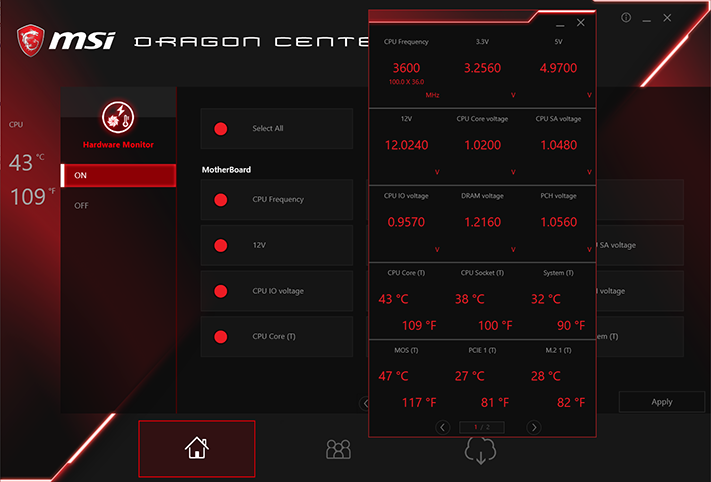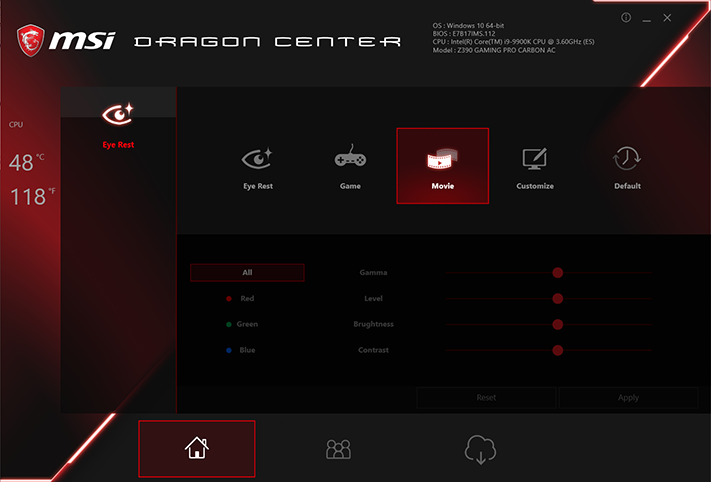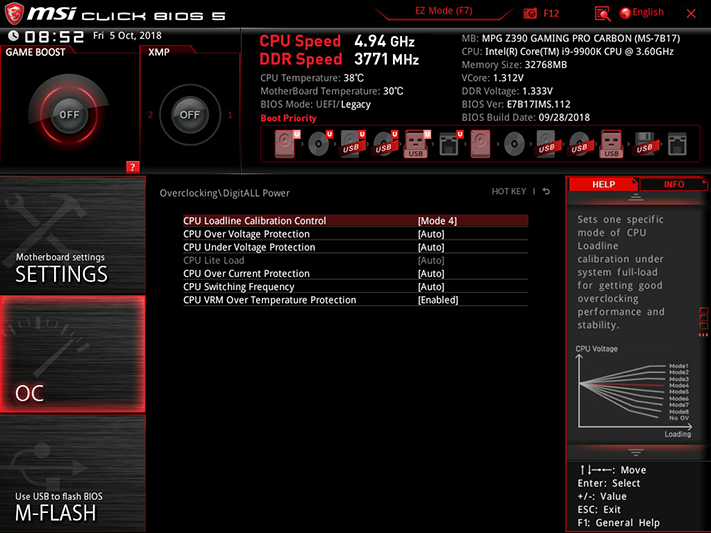MSI MPG Z390 Gaming Pro Carbon Review: Core i9 Value?
Why you can trust Tom's Hardware
Software & Firmware
The MPG Z390 Gaming Pro Carbon’s installation disc includes a version of MSI Mystic Light that worked with our HyperX RGB memory lighting as well as the onboard LEDs. The two separate lighting menus did not allow any settings as complex as setting up a synchronized chase sequence between integrated and DIMM lighting, but the onboard lighting’s limited scope would have made such synchronization difficult to observe, anyway.
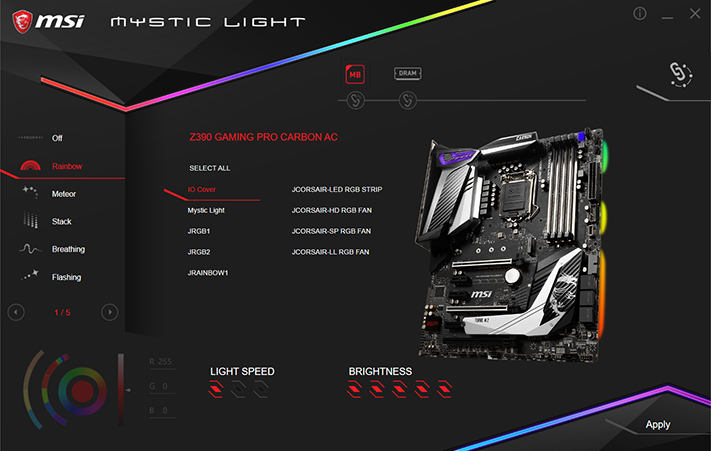
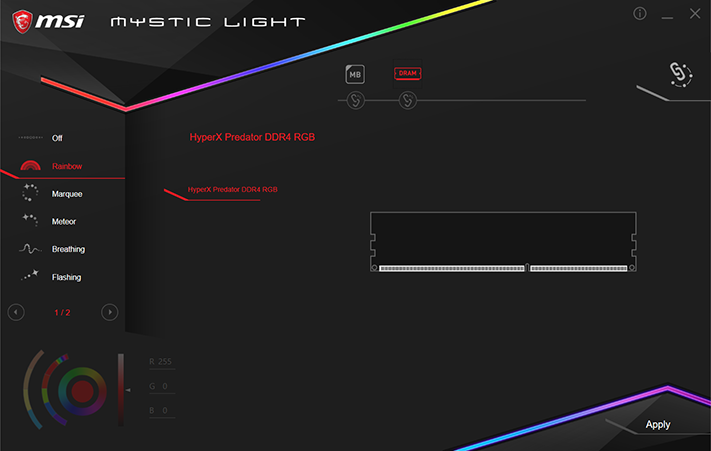
MSI Dragon Center replaces its former Command Center, providing overclocking controls, monitoring, display gamma control, and network optimization. Custom O/C settings are saved as profiles.
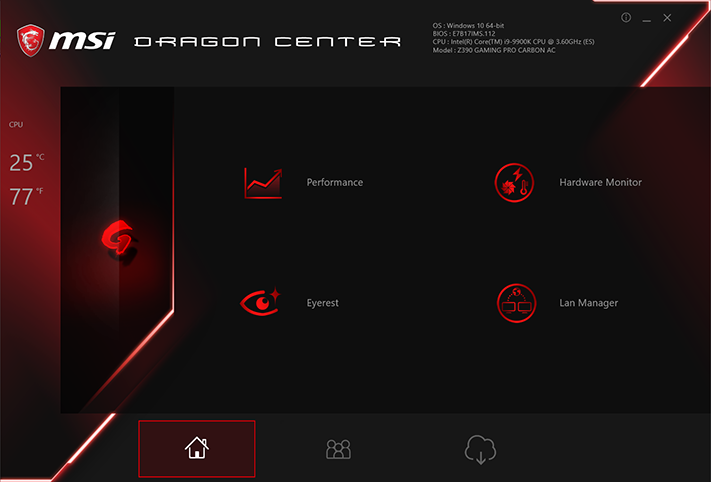
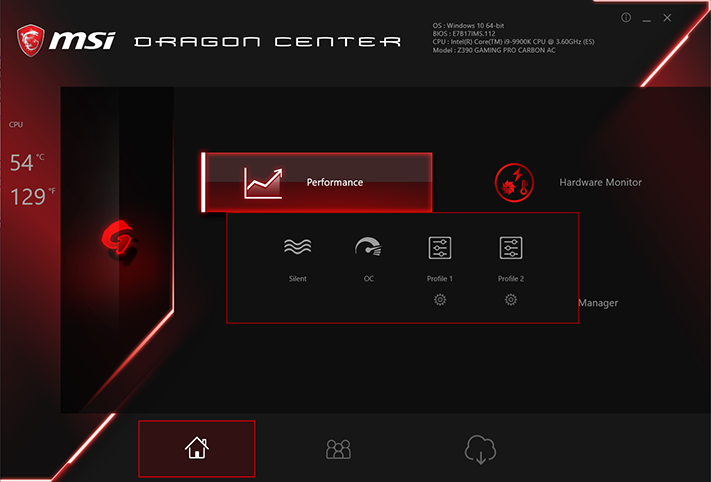
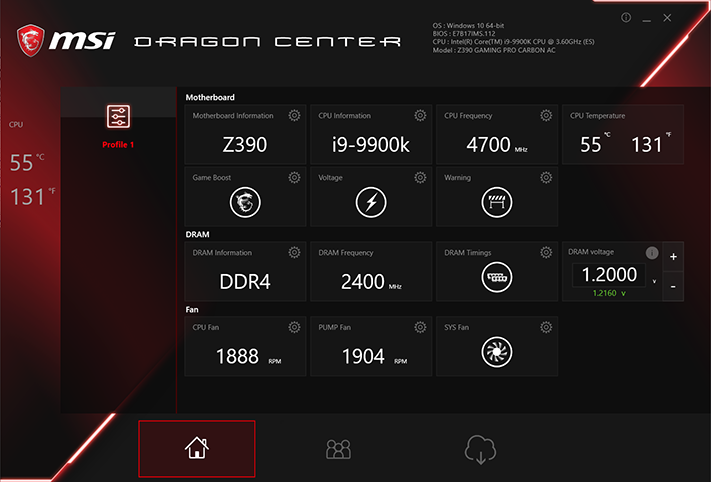
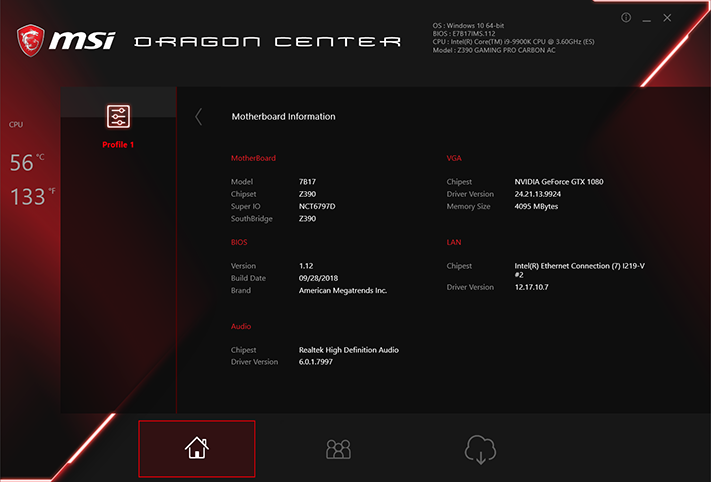
Opening a profile allowed us to adjust the CPU multiplier, base clock and core voltage, which were confirmed through both CPU-Z and Dragon Center. Voltage output was unpredictably higher than the chosen setting, however, and required risky hunting to find a workable value.
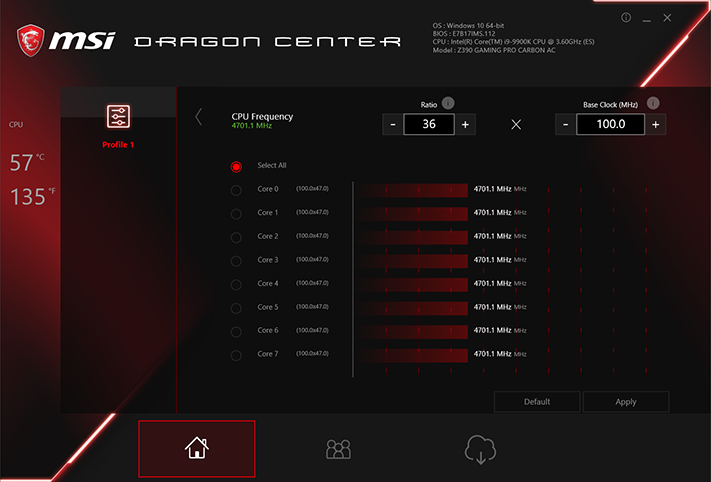
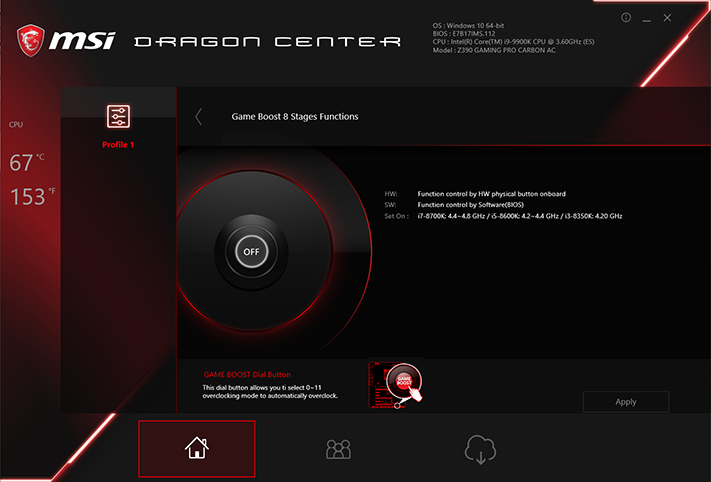
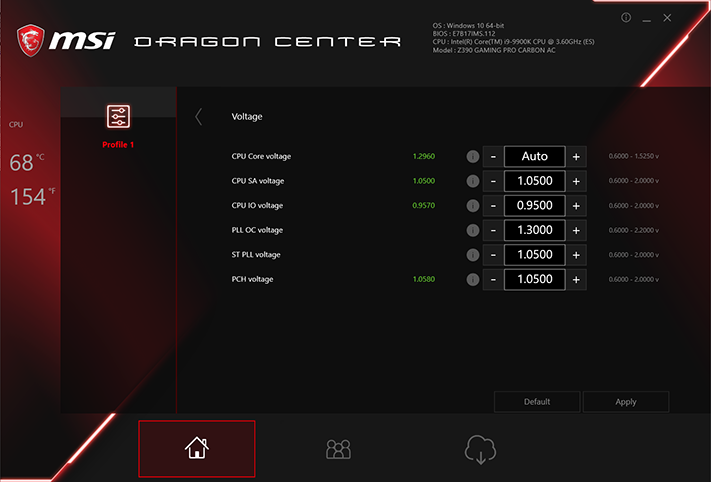
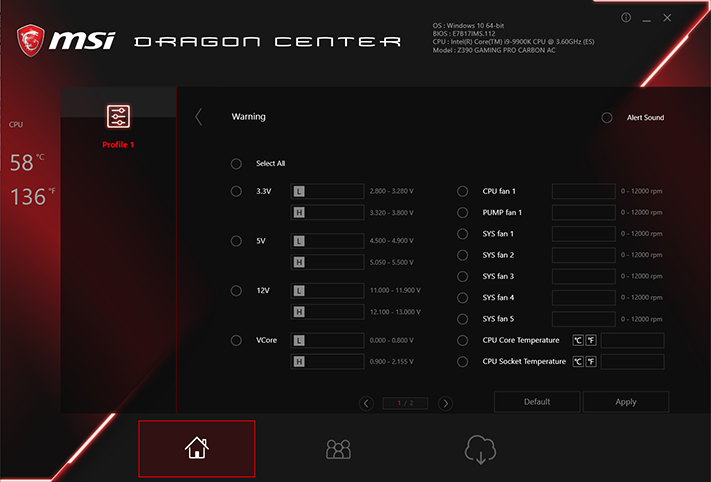
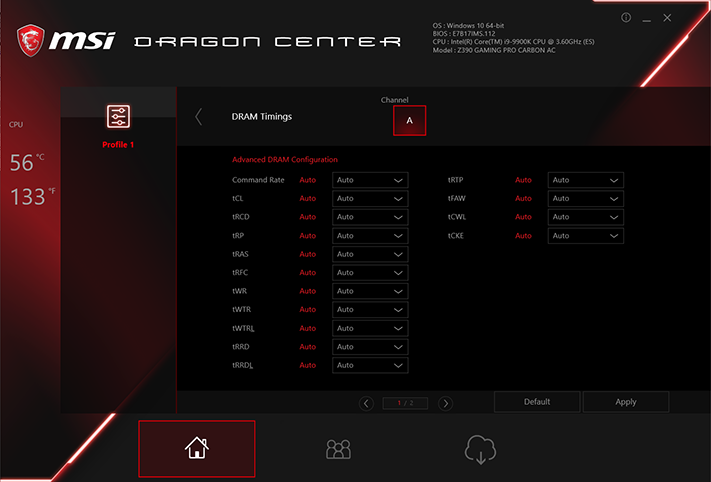
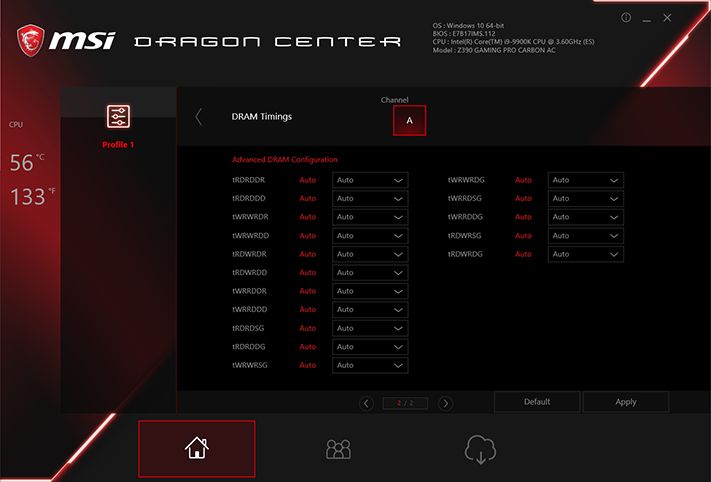
Fan settings can also be defined within an overclocking profile.

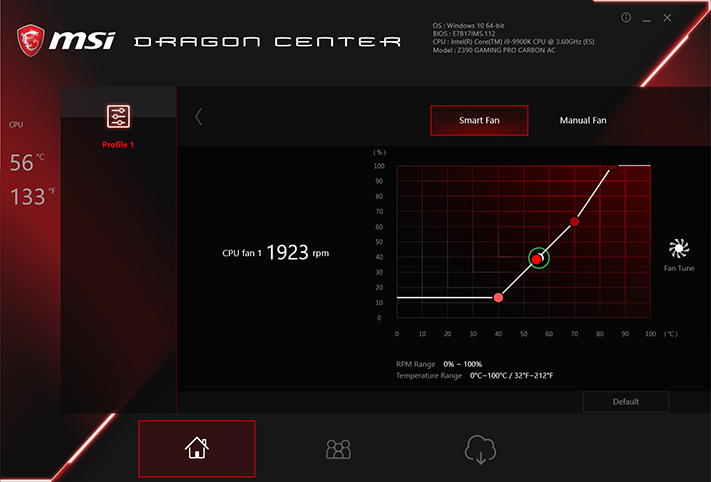
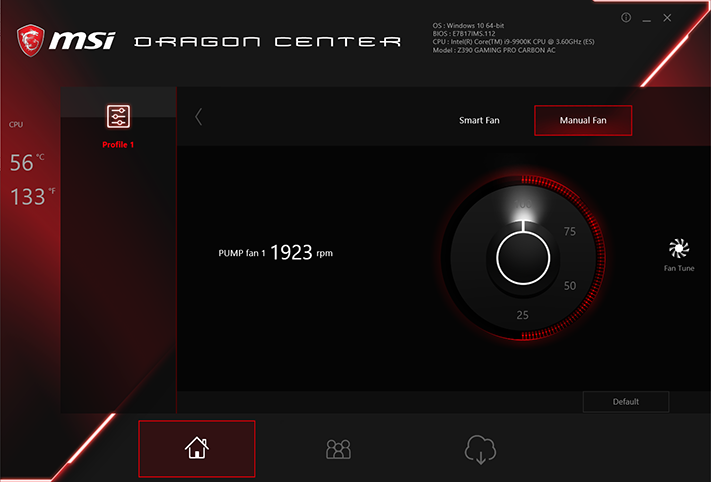
Dragon Center’s hardware monitor appears accurate, within a few hundredths of a volt or tenths of a degree.
MSI’s gamma control app, called Eye Rest, includes a blue light reducing mode as well as profiles designed for various applications.
Gaming LAN Manager is a custom Dragon Center user interface for the cFosSpeed network prioritization.
Get Tom's Hardware's best news and in-depth reviews, straight to your inbox.
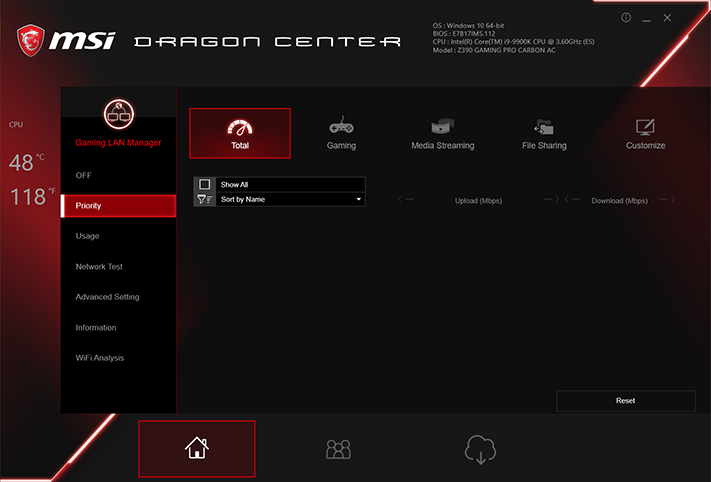
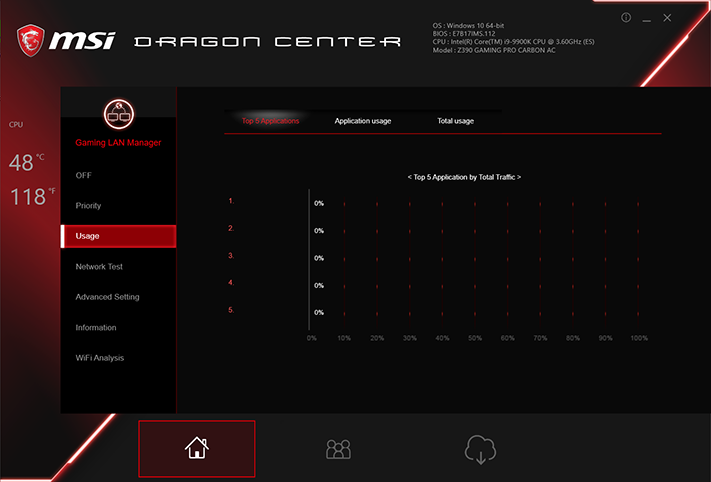
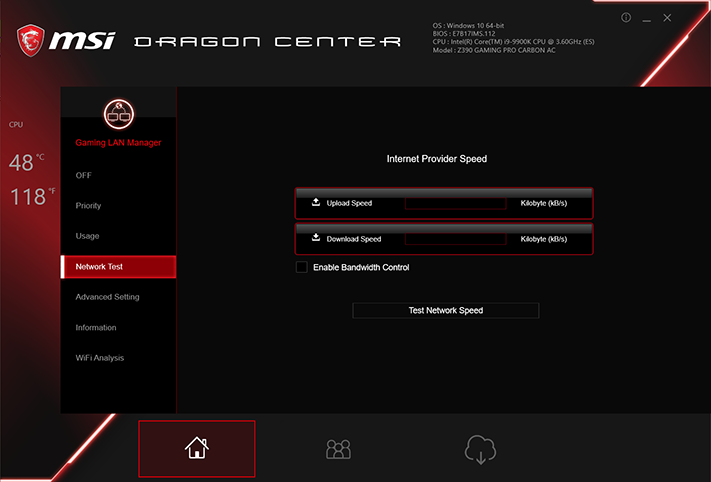
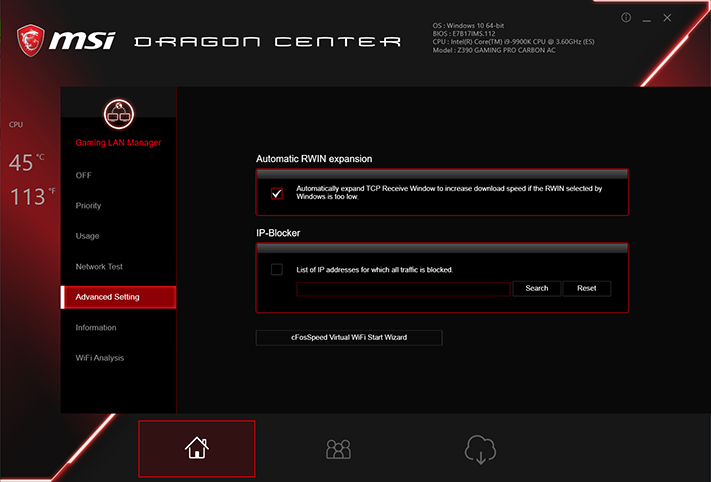
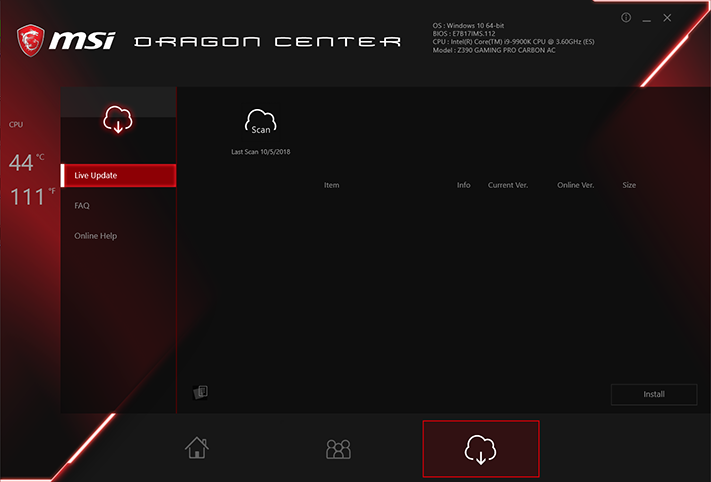
MSI Live Update is also incorporated within Dragon Center, poling the company’s servers for the latest firmware and MSI application updates.
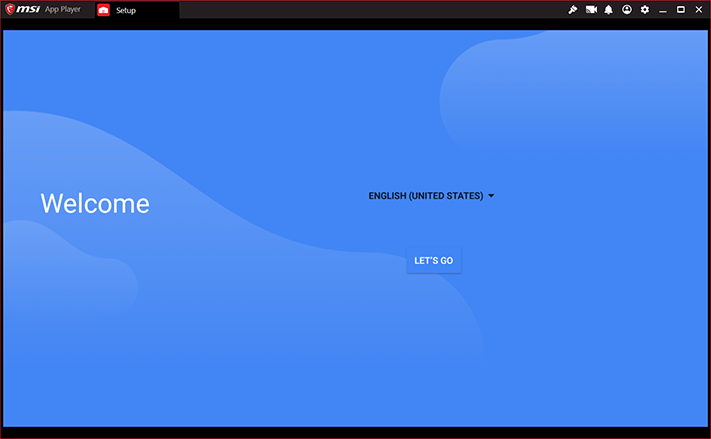

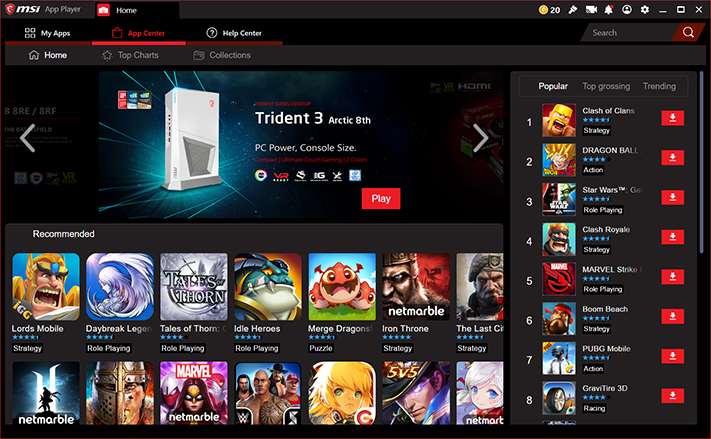

Also included with the MPG Z390 Gaming Pro Carbon, MSI App Player is a customized interface of Bluestacks, software that allows Android apps to run on a PC.
Firmware
The MPG Z390 Gaming Pro Carbon's firmware defaults to an “EZ Mode” interface, but remembers which mode was being used at the last exit. Manual mode switching is via F7 function key.
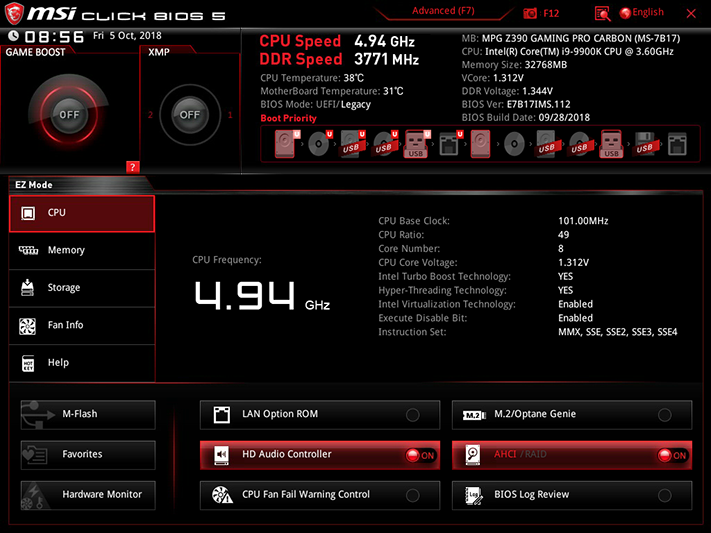
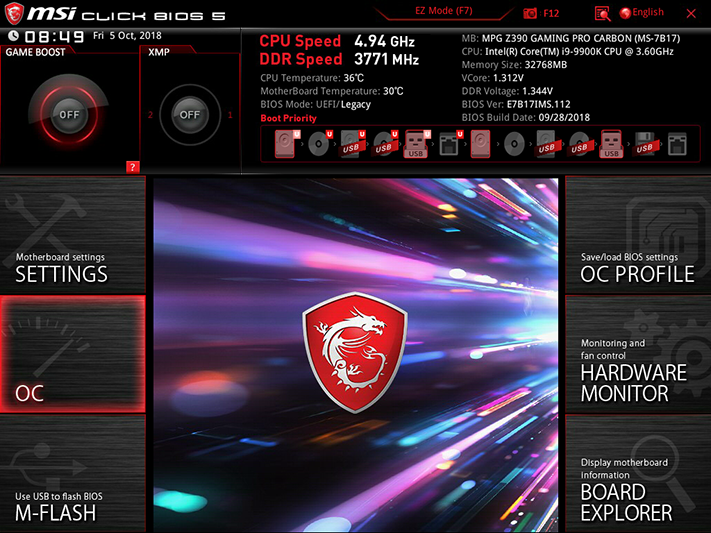
Default settings include an “Enhanced Turbo” mode under “Misc Setting” of “Auto,” which disappears when a manual multiplier is selected. When enabled, the “enhancement” selects the maximum (two core active) ratio of 50X on our Core i9-9900K even under 8-core loads, boosts CPU core voltage to around 1.38V, and causes instantaneous thermal throttling under Prime95 small-FFTs.
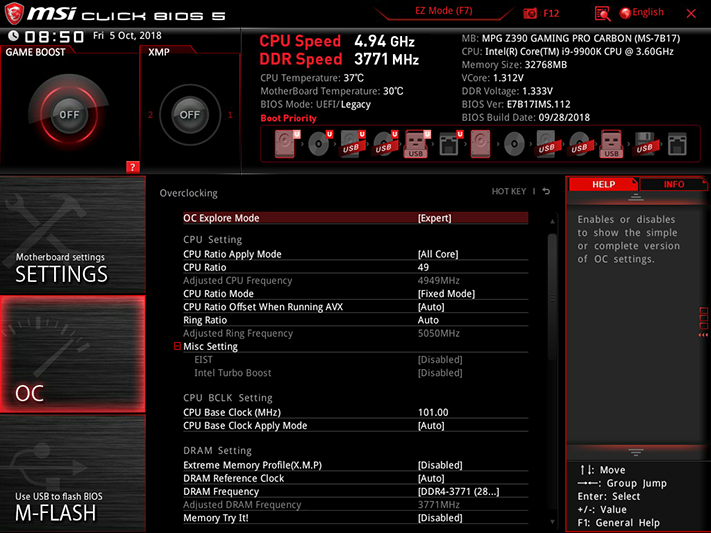
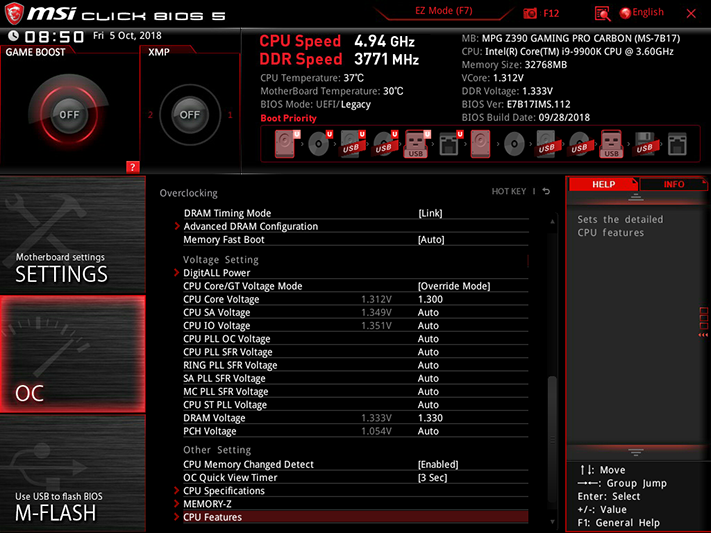
Manual tuning at 1.30V got us to 4949MHz at 49x 101MHz BCLK. Capable of data rates exceeding DDR4-4000 in its review, our four-DIMM DDR4-2933 sample reached a somewhat-high DDR4-3772 on the MPG Z390 Gaming Pro Carbon.
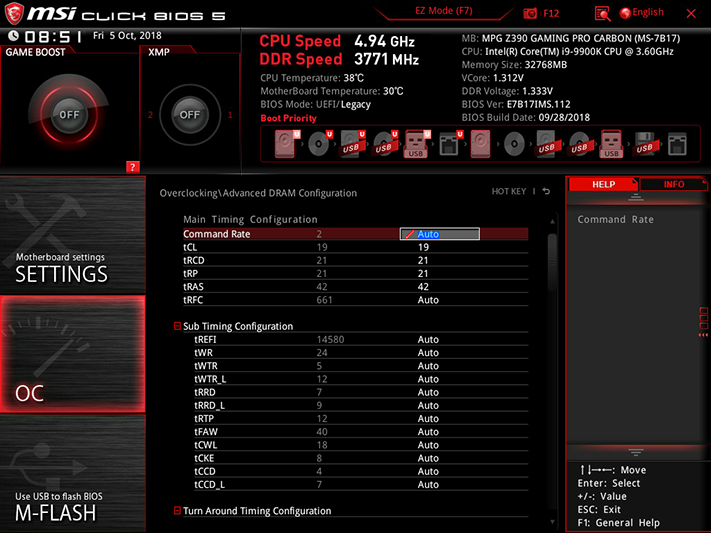
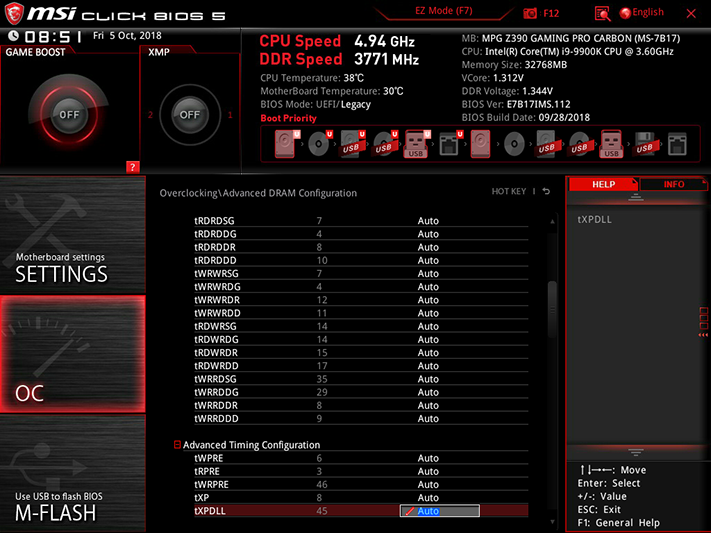
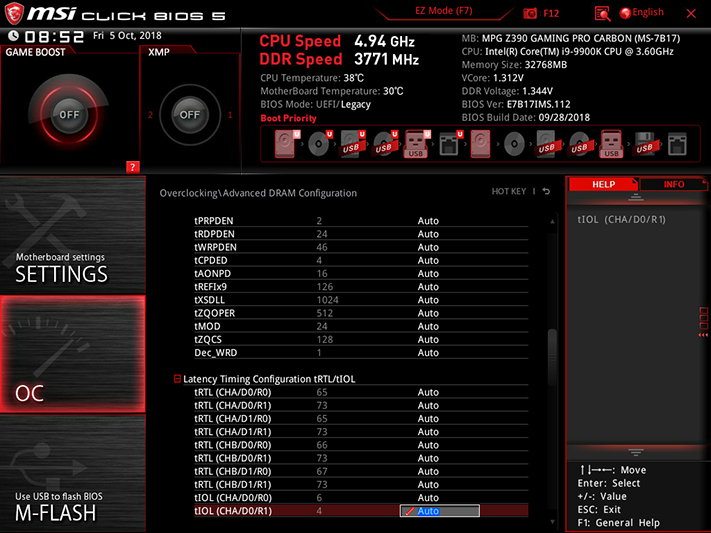
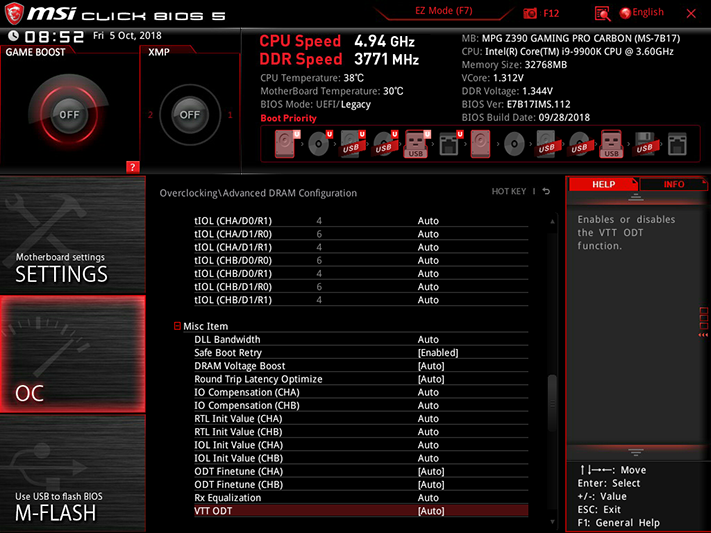
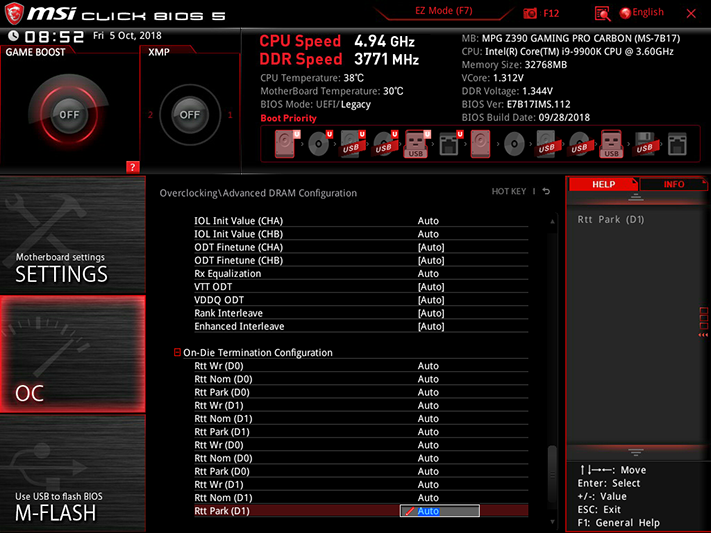
The title of our overclocking chart says CAS 21 max, but our test DIMMs usually reach their highest setting at either 19-21-21 or 20-21-21 latencies, depending on the board. We let the firmware manage advanced DRAM settings, and memory enthusiasts with a bunch of time on their hands are welcome to adjust the full set on the MPG Z390 Gaming Pro Carbon.
CPU Loadline Calibration boosts set voltage to overcome voltage sag under heavy loads, and we found that the motherboard’s Mode 4 setting maintained the most-stable full-load voltage at 4.95 GHz.
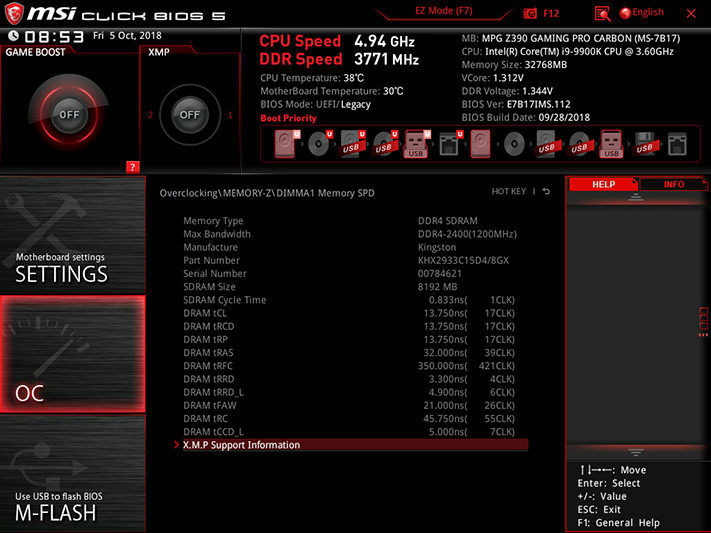
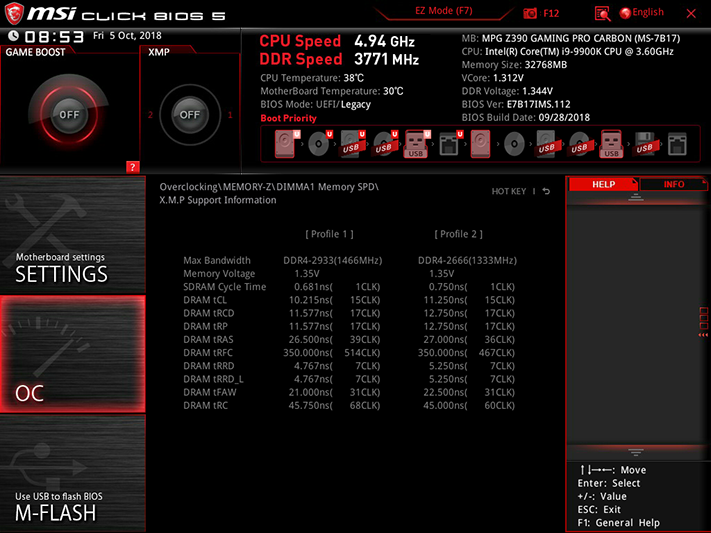
The “Memory Z” submenu reveals SPD timings and XMP settings programmed onto each module’s configuration ROM.
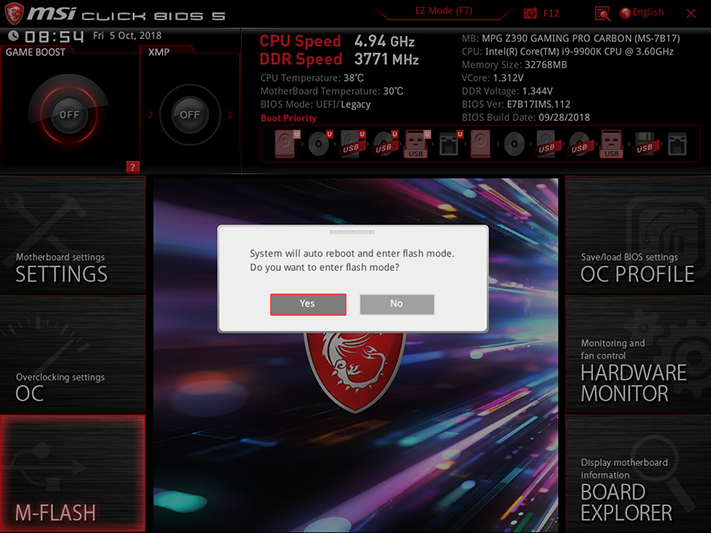
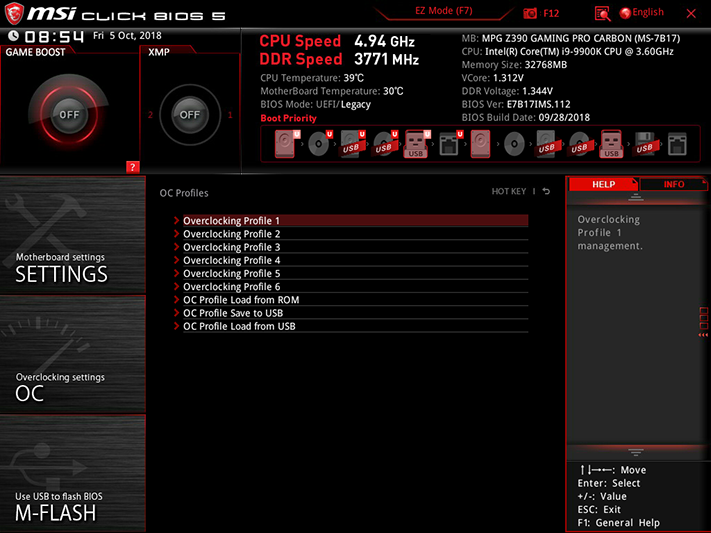
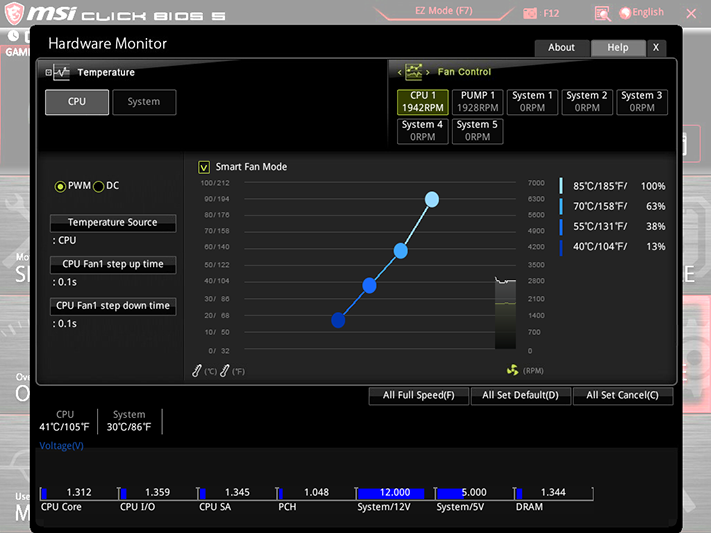
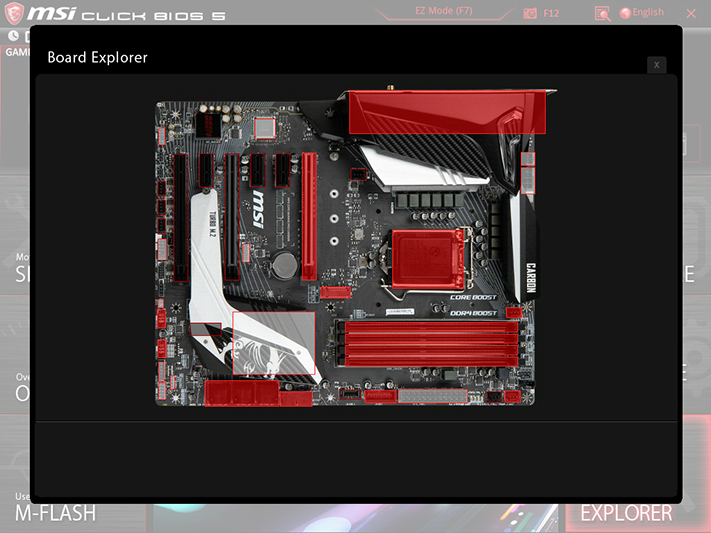
Other menus include M-Flash firmware programming interface, OC Profile with six onboard registers for custom firmware settings and the ability to import/export from a USB flash drive. There's a “Hardware Monitor” with graphical fan mapping, and a “Board Explorer” that reveals devices plugged into each zone when hovered over by the mouse cursor. That last menu is particularly useful for finding out if a device that isn’t showing up in Windows has gone undetected by the board.
MORE: Best Motherboards
MORE: How To Choose A Motherboard
MORE: All Motherboard Content
-
rantoc They say its SLI capable but yet have the same "stupid" 3 slots spacing resulting in the typical air starvation of the main card since it will be obstructed by the second card. Todays big custom air cooled cards are 2.5 to 3 pcie slots wide, not the old typical 2 pcie - When will the MB makers "evolve" to the new width of the cards for multigpu and who will be the first?Reply -
Crashman Reply
Even the founder's edition cards are only two slots, and most of the oversized cards are 2.5 slots. A 3-slot cooling design is a defective design, and such cards should be called out for that. We're already putting the top x16 slot in the case's 2nd slot hole to make space for oversized CPU coolers, voltage regulators and DIMM cooling, and there's a scarcity of 8-slot cases, so two three-slot cards' at 4-slot spacing doesn't even make sense. For those reseaons, if I review a board with the 2nd x16 slot aligned to the cases 6th card hole, I'll probably just write it off as a bad idea.21416966 said:They say its SLI capable but yet have the same "stupid" 3 slots spacing resulting in the typical air starvation of the main card since it will be obstructed by the second card. Todays big custom air cooled cards are 2.5 to 3 pcie slots wide, not the old typical 2 pcie - When will the MB makers "evolve" to the new width of the cards for multigpu and who will be the first?
-
wakoavo Great informative article !Reply
I have a question: Since the MPG z390 Gaming AC has the same VRM design, would that mean that it would be ok to pair a 9900k with it ? I recently got the Gaming AC model (won it online lolz) and was wondering if it would be able to control the 9900k xD -
Crashman Reply
They're the same board, this one even has the slot for the AC card, so everything said here applies there.21478211 said:Great informative article !
I have a question: Since the MPG z390 Gaming AC has the same VRM design, would that mean that it would be ok to pair a 9900k with it ? I recently got the Gaming AC model (won it online lolz) and was wondering if it would be able to control the 9900k xD
